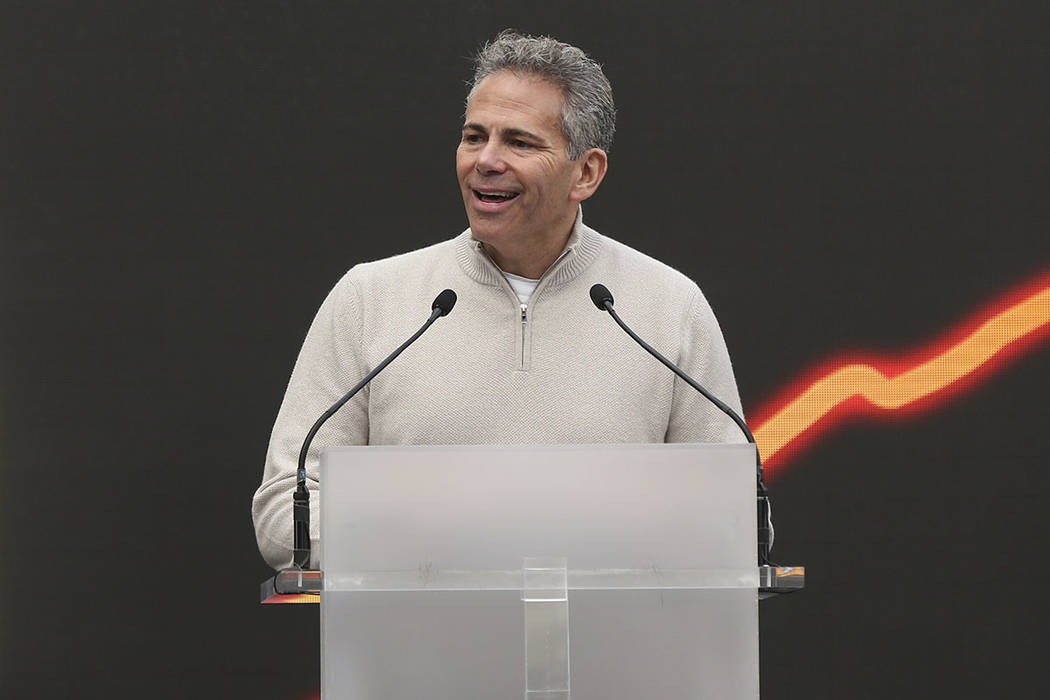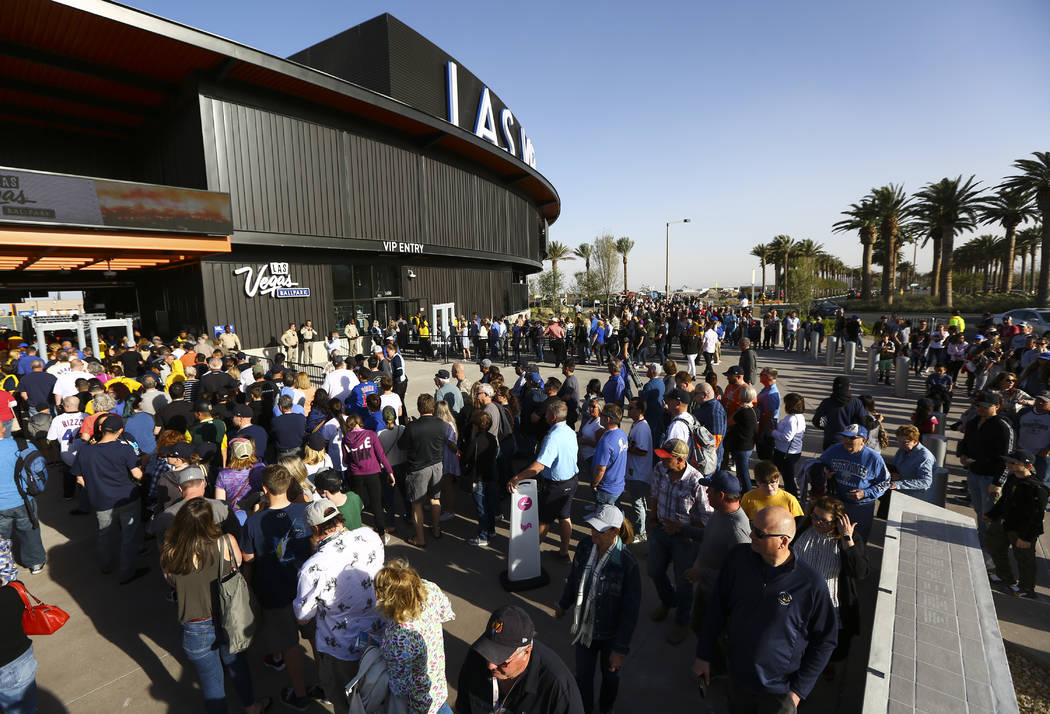Summerlin developer, Aviators owner Hughes Corp. to sell $2B in assets
After weighing a possible sale of the company, Summerlin developer Howard Hughes Corp. has replaced its top boss and unveiled other plans to save and make money.
Hughes Corp. announced Monday that Paul Layne, a regional president, has replaced CEO David Weinreb effective immediately and that both Weinreb and Hughes Corp. President Grant Herlitz “will step down from the company.”
The developer also wants to sell about $2 billion worth of “non-core assets” and to reduce overhead by $45 million to $50 million annually through organizational changes.
Las Vegas’ largest master-planned community could also see more construction soon, with the developer citing 8 million square feet of “near-term” development opportunities in Summerlin.
The burst of changes follows Hughes Corp.’s announcement in June that as part of a “strategic review,” it was considering a sale of the company; a sale, joint venture or spin-off of a portion of its assets; a recapitalization; or changes to its corporate structure.
The goal was to “maximize shareholder value,” with Weinreb stating at the time that the business “continues to perform extremely well” but indicating its stock price was lower than it should be.
If a buyer had snapped up Hughes Corp., it would have put the Las Vegas Aviators, its ballpark, the open-air Downtown Summerlin mall and thousands of acres of suburban Las Vegas land in new hands.
Hughes Corp. sells land to homebuilders in Summerlin, which spans 22,500 acres along the valley’s western rim, commands some of the highest home and land prices in Southern Nevada, and is one of the top spots in the country for builders’ sales.
Billionaire hedge-fund operator Bill Ackman, chairman of Hughes Corp., told analysts Monday that the company underwent a “full-blown sales process,” with 14 prospective buyers conducting a deep look at the developer.
Eight were seen as lead investors. Among those, he indicated, seven stated they didn’t have the capital for this kind of transaction. The eighth still appears interested, but it’s unclear whether that buyer will make an offer, Ackman said.
Some assets may be sold
Hughes Corp. has projects and properties in several states, including Hawaii, Utah, Texas and New York. In a presentation released Monday, Hughes Corp. listed several non-core assets; none was identified as being in Summerlin.
By selling such assets, the company expects to generate around $600 million in cash proceeds after debt repayment and transaction costs. The funds would be used to buy back shares and for development opportunities in “core” master-planned communities, the company said.
Its presentation also pointed to commercial development pipelines. In Summerlin, that includes 5 million square feet of office space, 5,600 multifamily units, and 100,000 square feet of neighborhood retail.
If Hughes Corp. had sold, it wouldn’t have been the first time Summerlin’s developer fell under new ownership.
The Texas-based company traces its roots to its namesake Howard Hughes, the famed aviator, businessman and recluse who acquired the land now known as Summerlin — named after his grandmother Jean Amelia Summerlin — in the 1950s.
Hughes died in 1976. Twenty years later, his heirs sold the Howard Hughes Corp. to Maryland mall developer the Rouse Co. in a $520 million deal, according to news reports at the time.
Chicago mall operator General Growth Properties acquired Rouse in a $12.6 billion deal in 2004 as the real estate bubble inflated. But the economy eventually crashed, and General Growth halted construction of the outdoor mall now known as Downtown Summerlin, leaving a steel skeleton off the side of the 215 Beltway at Sahara Avenue.
General Growth went bankrupt in 2009 — Reuters called it the biggest real estate failure in U.S. history — and as part of its exit from bankruptcy in 2010, it spun off The Howard Hughes Corp. as a separate company with control over Summerlin and other properties.
Contact Eli Segall at esegall@reviewjournal.com or 702-383-0342. Follow @eli_segall on Twitter.

























